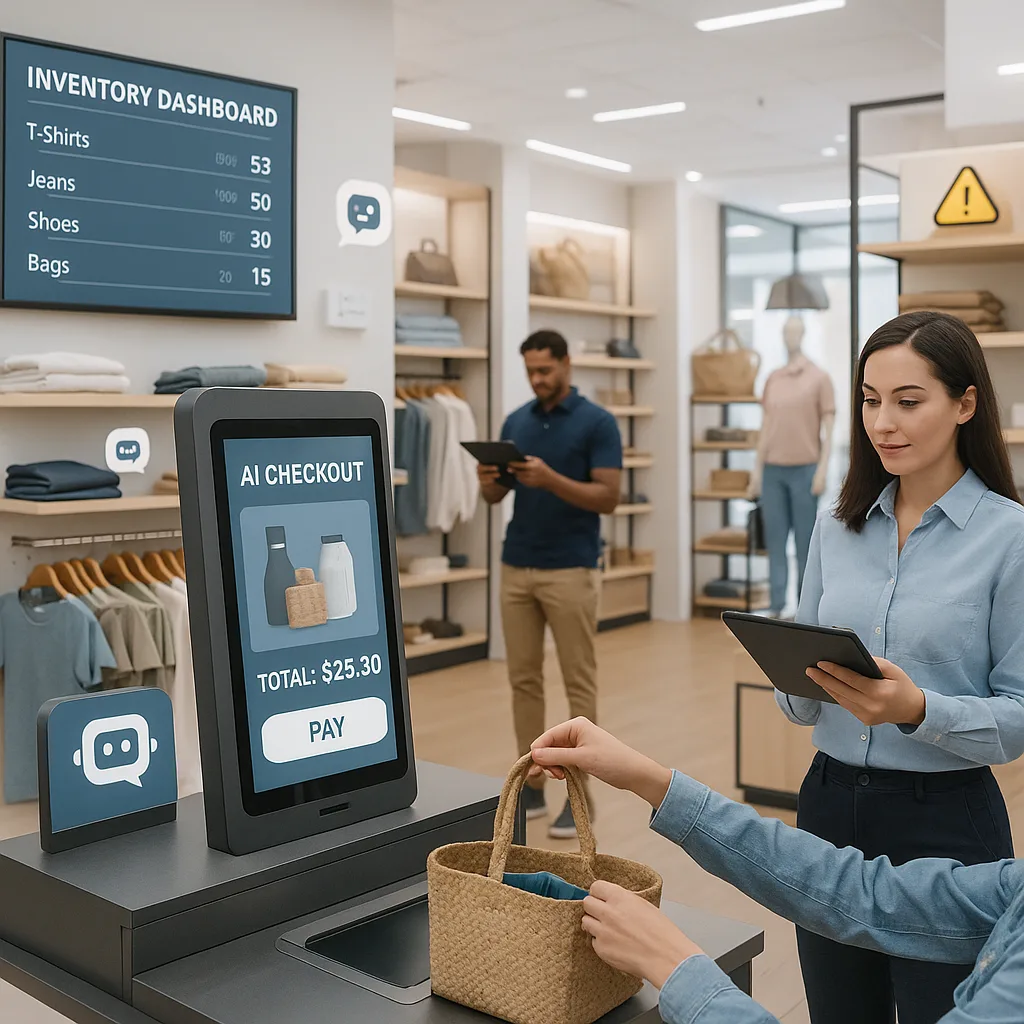Retail is undergoing one of the biggest tech shifts in decades. With changing consumer behavior, demand for personalization, and rising operational costs, retailers must evolve quickly. Fortunately, digital transformation tools like custom app development for new businesses and AI-driven automation are enabling smarter, more efficient operations than ever before.
From inventory management to customer service, technology is no longer just a support tool—it’s a competitive advantage. In this blog, we explore how custom software, automation, and communication platforms are helping retail businesses scale in 2025 and beyond.
1. AI-Powered Customer Experience
Retailers are using AI to deliver hyper-personalized experiences. With CRM software for tech startups adapted to retail, businesses can collect and analyze data from in-store and online touchpoints to tailor promotions, recommend products, and improve loyalty.
- AI chatbots handle queries instantly
- Dynamic product recommendations boost cart value
- Behavioral segmentation improves marketing ROI
Additionally, integrating these features into a business automation platform helps align teams across sales, service, and logistics.
2. Smarter Inventory Management with Custom Apps
Keeping the right stock at the right place and time is mission-critical. Through custom app development for new businesses, retailers are deploying inventory apps that sync with POS, supplier systems, and demand forecasts.
- Low-stock alerts and automatic reorders
- Barcode scanning and shelf-side restocking
- Predictive inventory analytics using AI
As a result, retailers can reduce stockouts, eliminate overstocking, and keep margins healthy.
3. Retail Workflow Automation at Scale
Store managers and HQ teams waste hours on manual reporting, approvals, and updates. This is where startup workflow automation tools come into play:
- Daily sales reports generated and emailed automatically
- Employee shift scheduling synced to availability
- Customer complaints routed to the right department instantly
Not only does this reduce admin time, but it also boosts transparency and accountability across locations.
4. Team Collaboration With Internal Communication Software
Retail chains often struggle with communication between frontline workers and HQ. Using internal communication software, stores are unifying task updates, product launches, and real-time announcements.
- Create store-specific or global chat channels
- Send time-sensitive updates with read receipts
- Connect messages to inventory, training, or campaign tasks
As a result, execution becomes faster, and fewer things fall through the cracks.
5. Easy-to-Rank Supporting Features
Incorporating tools like a team management platform or project tracking tools for startups can significantly reduce turnover and improve store performance. Similarly, a productivity dashboard for small teams helps retail managers focus on daily KPIs.
These additional layers of automation and insight give modern retail brands a massive edge over competitors still using spreadsheets.
Conclusion: Future-Ready Retail Starts with Smart Tech
In 2025, the most successful retailers will be those who treat software as a core asset—not an add-on. With smart integration of custom app development for new businesses, AI, and communication platforms, you can build a scalable, customer-centric business that thrives in a fast-changing world.
